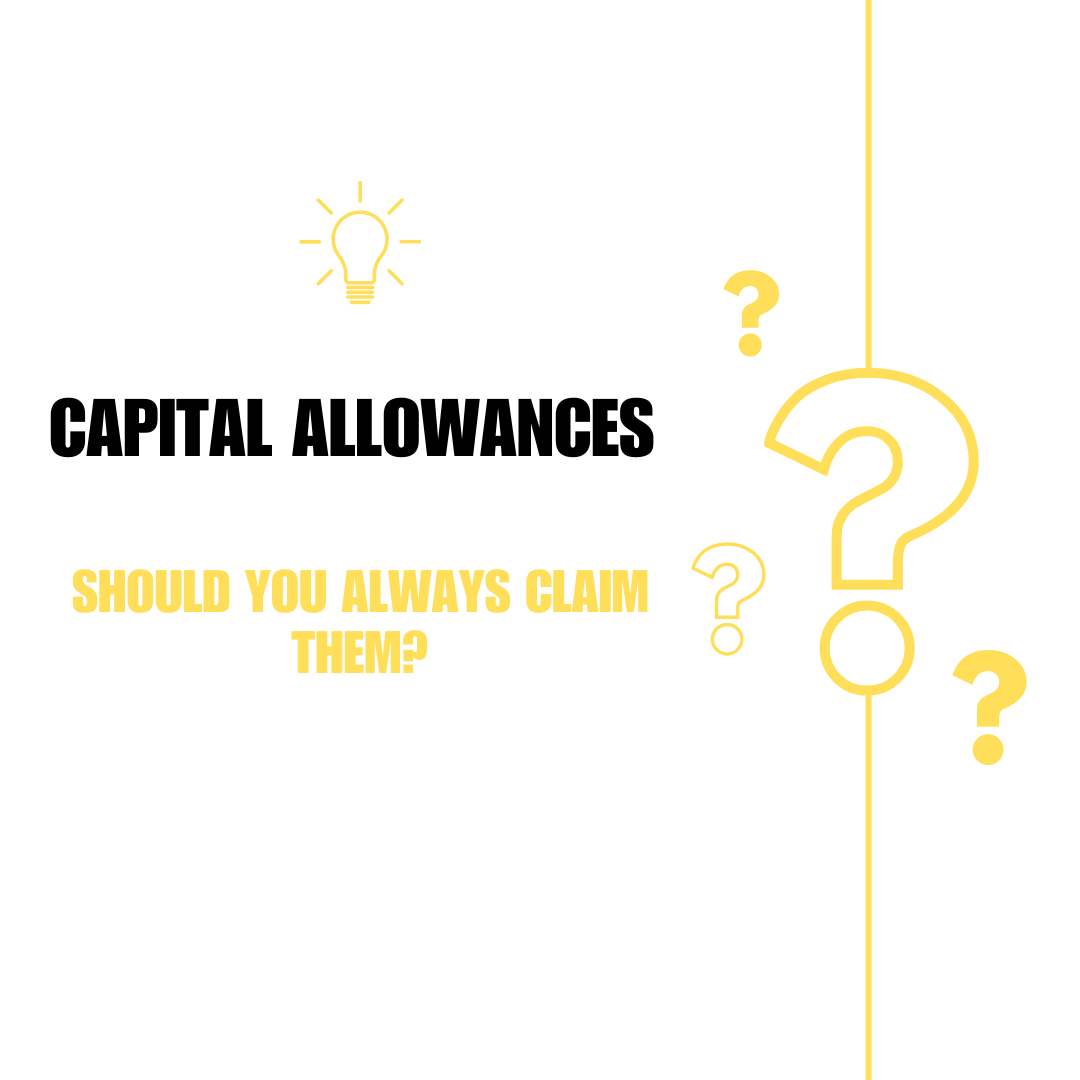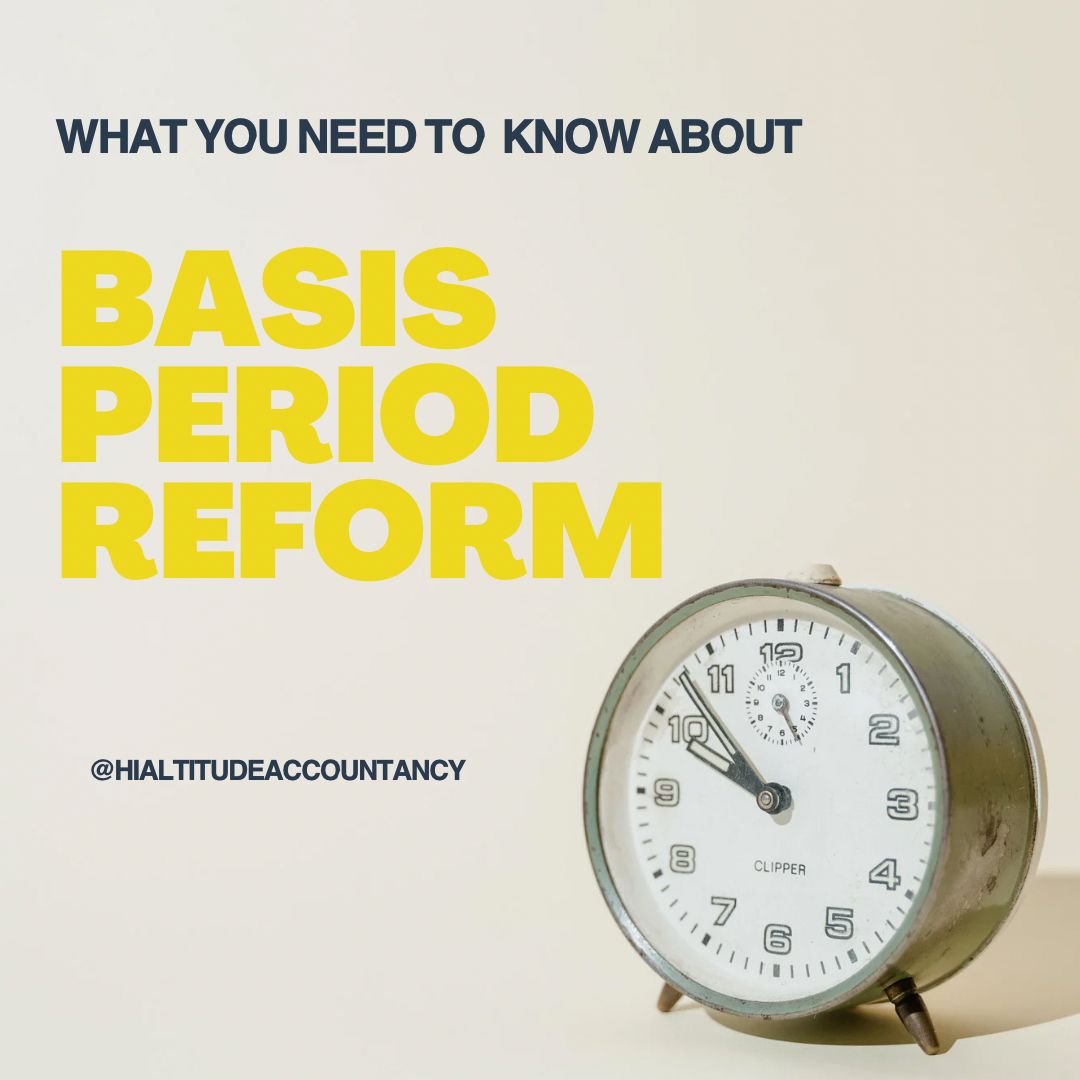Capital Allowances...should you claim them?

Capital allowances. To claim or not to claim? When it’s good and when it’s bad.
Claimingtax allowable depreciation on your assets as a business is a term known as "Capital Allowances" (CA's).
When assets are purchased, they are added to a “pool” at thier fair value, which is reduced annually using HMRC ranging from 2% to 100% depending on the asset (and tax year) involved.
These allowances are deducted against your annual profits to arrive at your taxable income.
You do not need to claim CAs each year. It’s your choice.
You do not lose the unclaimed value so if you go easy on your claim, you’ll still be able to continue claiming in the next year and years ahead.
There some instances where it would be wise to waive your entitlement.
These are when:
- Your profits are low enough to be covered by your personal allowances.
To elaborate on this - Your personal allowance is set each year by the government. For 2023/24 the allowance is £12570. This personal allowance is a “use it or lose it” allowance, meaning you can’t carry any unused allowance forward to the next year. If your profits were below this amount caused by claiming too much CA’s, you’d be essentially wasting your personal allowance and have less Capital value in the pool to carry forward, meaning you’d lose out in future years from a higher claim.
• Higher profits are needed for pension or mortgage purposes.
If you’re in the process of re-mortgaging or seeking out a business loan, low profits won’t look good. Claiming 100% of the asset value could lower your profits significantly in that year which won’t look good on a bank application when trying to prove your earnings are sufficient to pay the loan or mortgage back.
- Claiming them might trigger an excessive Gift Aid donation charge.
So you’ve given donations and ticked the Giftaid box? Standard practice for most of us who are happy to give that bit extra. However…Donors who have not been charged sufficient tax to cover the Income Tax deducted from their Gift Aid donations are responsible for pay any difference.
- Other loss relief (which may be lost if not claimed) can be used instead
If in the accounting years prior you suffered losses in your busines, you only have so long to claim these back in the future years. If a loss relief claim has been made, the carried forward loss must be set off against the next available trading income.
- There will be a large Balancing Charge (the difference between selling price and brought forward balance) if you plan to sell assets in future.
Think carefully on this one. You’ve bought a nice expensive vehicle or piece of equipment. You want to claim all of the cost back. So tempting.
But when you sell it in future years, the balance in the pool could be zero if you claim all of it. If that happens and you sell it for a nice sum, you’ll pay tax on the difference between what is in the pool vs what the selling price is. This is known as a balancing charge. On the other hand, if you don’t claim much and your selling price is less than the figure left in the pool, you’ll get a balancing allowance which can be deducted in your favour later.
Points to remember:
- HMRC cannot force you to make a claim for CA’s each year.
- Do the maths.
- You can choose to waive some or all of any CA’s.
- Consider the future.
- CA rates are subject to change. (So you might opt to waive your entitlement for one rate, for it to change in another year. Ultimately, you will still receive the same amount of allowance for the life of the asset, it is just the timing of the relief that will alter).
- Get professional advice from a qualified, experienced accountant.
- Not claiming every allowance at the first opportunity, you can potentially avoid wasting your CA’s against other allowances or losses, optimise how much relief you can claim in future and reduce potential charges on the sale of assets.
We hope this has helped a few of you consider your options.










